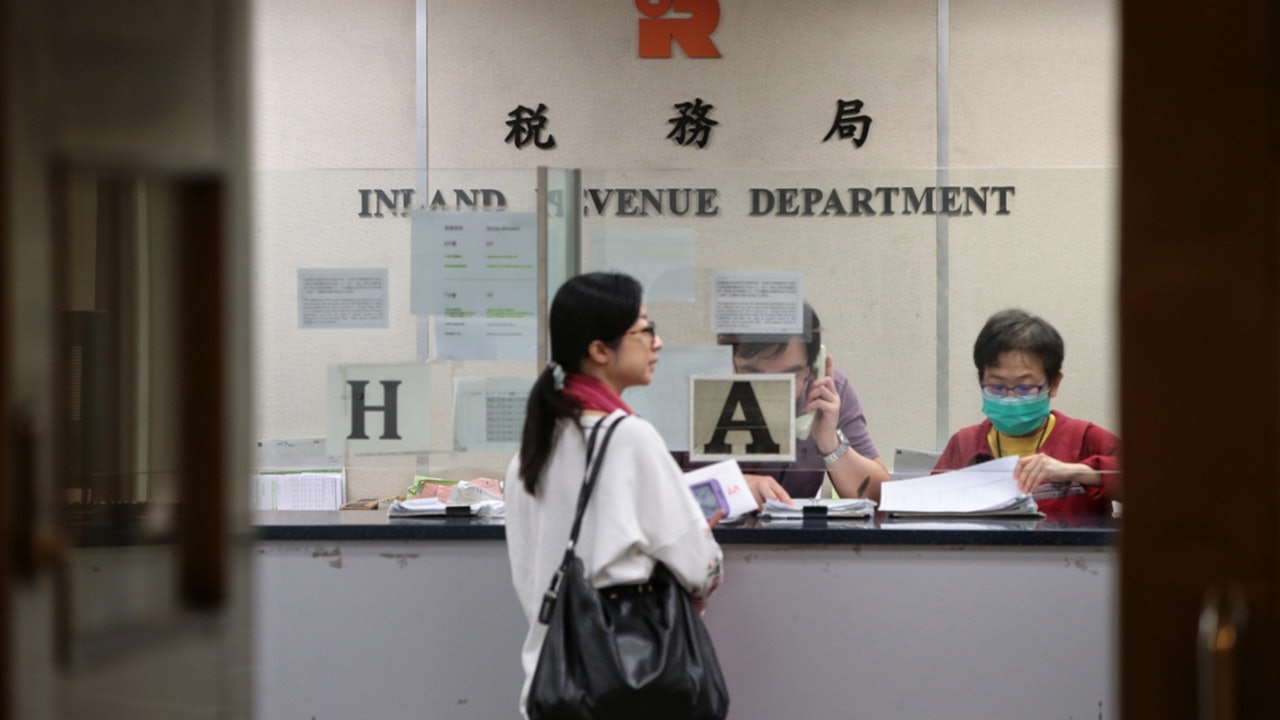01 point of view
Written by: Review Editor
2020-06-15 17:00
Last update date: 2020-06-15 17:00The government has set up "spicy tricks" for residential sales, but there are still many ways to avoid tax. In addition to buyers buying property under the pretext of "first home", it is also a common method to buy and sell properties through company equity transfer. The Treasury Bureau recently responded to questions raised by members of the Legislative Council, which reflected that the recent "backdoor" buying situation has become increasingly serious. The government's implementation of spicy tricks is to control the speculative demand for investment and promote a healthy housing market and housing distribution. However, the loopholes in the turmoil are becoming more and more obvious, and the government must block it as soon as possible.
"Backdoor" changing hands can avoid all spicy tricks
To put it simply, "backdoor" trading generally refers to investors investing in properties by registering empty shell companies (ie companies with no substantive business) and buying and selling properties in disguise by transferring company shares, thus avoiding many spicy moves. For example, buying and selling a house by transferring company shares only pays a stamp duty of 0.2% of the share value (0.1% for each buyer and seller), which is insignificant compared to the 15% ad valorem stamp duty for ordinary buyers. In addition, generally speaking, non-Hong Kong people must pay up to 15% of the buyer’s stamp duty on the purchase of local residences, but they are exempt if they change hands after "backdooring". What's more, owners who resell their residential properties with less than three years of holding the goods are subject to an additional stamp duty ranging from 15% to 20%. However, this is not the case under the "company share transfer" method of buying and selling properties necessary. Of course, buyers must always pay an ad valorem stamp duty of 15% when they set up a shell company. However, in the future, the transfer of company shares will avoid all the hot market moves, so this is why "backdoor" sales are popular.
In order to suppress "speculation", the government has launched a number of "spicy moves" in the property market since November 2010. (Profile picture)
In recent years, local research institutes have thoroughly studied the phenomenon of tax avoidance and property purchase. Taking the case in his report as an example, a local registered company held a unit of the West Kowloon Mansion Triumphal Arch, which was later transferred to a senior Mainland investor by share transaction in 2014 (in fact, he also held multiple West Kowloon Property), with a transaction volume of approximately HK$140 million. If a non-Hong Kong person purchases a residence in Hong Kong according to normal channels, then 23.5% buyer’s stamp duty and double stamp duty must be paid. But as mentioned above, under the share transfer, the buyer and seller only need to pay a stamp duty of 0.2%, so it is estimated that this example can avoid tax by more than 30 million. The "backdoor" trading interests are so rich, and there is no reason for it to become popular.
The Treasury Bureau recently responded to questions raised by Members and announced that the number of "Form IRSD102" received by the Inland Revenue Department has increased from 2,311 in 2015-16 to 3,400 in 2018-19, an increase of up to 50%. Generally speaking, "Form IRSD102" is a form that a private company must fill in if it is holding a property during the stock transfer or the most recent review and settlement date. More importantly, if the company or its affiliates have purchased and/or sold properties during the period, they must also complete this form for declaration. In other words, if an unlisted company wants to buy or sell a property through company equity, it must fill out this form. Therefore, the increase in the number of forms received by the government reflects, to a certain extent, the situation of investors evading taxes by buying backdoors.
"Backdoor" encourages investment in housing
There are loopholes in the "spicy move", which will inevitably affect its efficiency in controlling housing demand, and the loopholes in the "backdoor" trading are more inclined to the rich, thereby causing greater injustice. It stands to reason that it is costly to establish a shell company to buy and sell buildings, such as the annual audit of an accountant, the need for a lawyer to review the property rights of the buyer and the finance of the acquired company, etc., and it is not as easy as the general buyer can borrow from the bank Mortgage requires more funds in disguise, so "backdooring" tax avoidance is not easy for ordinary people. But looking at it from another angle, such loopholes have become patents for the wealthy to avoid taxes, and even encourage the rich to invest in and speculate on housing.
What's more, this loophole also has the opportunity to condone the influx of foreign capital into the local property market. The government said that investment demand in the property market is limited, but as local research agencies criticized, taking 2017/18 as an example, there were only 4,358 transactions involving buyer’s stamp duty, while there were 3,396 transactions in the company’s equity transfer during the same period. The lack of overseas hot money has used this to avoid tax, which means that "backdoor" trading has become a gap to facilitate overseas investment in the Hong Kong property market.
The original intention of setting up spicy tricks was to manage the demand of the property market and curb unnecessary speculation. Regarding the loopholes involved in the transfer of company shares, the government insists that this behavior is very easy for humans to operate, that is, it is argued that the beneficial ownership of the property may belong to someone other than the purchaser, that is, it is not necessarily a shareholder. However, regardless of whether it can be easily abused by the public, the consequences of the "backdoor" loophole are obviously serious, and as the "backdoor" tax avoidance becomes more common, the government only insists that the company's shareholders are not necessarily the true beneficial owners of the property, and it is undoubtedly deceiving themselves. . The government must plug the loopholes as soon as possible. For example, transactions requiring the transfer of company shares are also taxed at the current stamp duty rate. Speculators should no longer be allowed to take advantage of the loopholes for profit, and even affect the property market and housing allocation in Hong Kong.
Adjustment of stamp duty arrangement depends on public needs
[Financial Budget] After the Pakatan Rakyat transfers money to support it, it ignores the big problem of the tax system
[Stamp Tax] Investors use close relatives to avoid hot tricks, the government must plug the "first set" loophole
01 depth
Spicy trick loophole stamp duty double stamp duty additional stamp duty (SSD) Buyer stamp duty ﹙BSD﹚01








